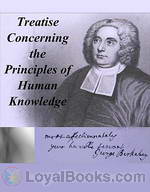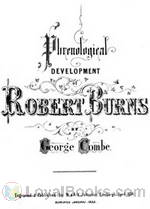|
Books Should Be Free Loyal Books Free Public Domain Audiobooks & eBook Downloads |
|
|
Books Should Be Free Loyal Books Free Public Domain Audiobooks & eBook Downloads |
|
Psychology Books |
|---|
|
Book type:
Sort by:
View by:
|
By: Elizabeth Klett (1867-1936) | |
|---|---|
 Six Characters in Search of an Author
Six Characters in Search of an Author
Six Characters in Search of an Author (Sei personaggi in cerca d’autore) is the most famous and celebrated play by the Italian writer Luigi Pirandello. Pirandello, in the preface to the play, says that whenever a reader opens Dante’s Inferno, Francesca will drift down from the dark wind in her circle of Hell and tell the Pilgrim her story; and it will always be for the first time – just as the Mother in Pirandello’s play at one point makes an agonizing cry, always for the first time. Each character sees events and the other characters differently... | |
By: Elliott O'Donnell (1872-1965) | |
|---|---|
 Byways of Ghost-Land
Byways of Ghost-Land
| |
 Some Haunted Houses of England and Wales
Some Haunted Houses of England and Wales
Old buildings necessarily have a history. It is not always a happy history and folklore abounds. Sometimes unhappy souls come back to haunt the current residents or their guests. Whether you believe in ghosts or not, these narratives provide a fascinating insight into the history of the buildings and the hysteria they may induce. - Summary by Lynne Thompson | |
By: Elliott O’Donnell (1872—1965) | |
|---|---|
 Animal Ghosts
Animal Ghosts
Summary: This is a collection of ghost stories in which the antagonists are various animals. Divided up into chapters of ghost sightings by each group of animals, you will hear of hauntings by dogs, cats, birds, jungle animals, etc. (Summary by Allyson Hester) | |
By: Elsie Lincoln Benedict | |
|---|---|
 How to Analyze People on Sight Through the Science of Human Analysis: The Five Human Types
How to Analyze People on Sight Through the Science of Human Analysis: The Five Human Types
In this popular American book from the 1920s, accomplished public speaker and self-help charlatan Elsie Lincoln Benedict outlines her pseudo-scientific system of "Human Analysis". She proposes that, within the human race, five sub-types have developed through evolutionary processes, each with its own distinct character traits and corresponding outward appearance. She offers to teach the reader how to recognise these five types of people and understand their innate differences. Her ideas have never been taken seriously by the scientific community, but this book is considered a classic within its genre and remains in print today. Summary by Carl Manchester. | |
By: Emanuel Swedenborg (1688-1772) | |
|---|---|
 Soul or Rational Psychology
Soul or Rational Psychology
Swedenborg, Emanuel, 1688-1772, was born in Stockholm, Sweden and died in London, England. He was a voluminous writer of scientific treatises as well as prophetic works such as Archana Caelestia and The Divine Providence. He said he had encountered supranational agencies and communicated with angels. This is a recording of the 1849 translation of his 1743 book The Soul or Rational Psychology Latin. He took his cue from Aristotle's De Anima. A few quotes It has been shown above that the harmonies... | |
By: Emory Adams Allen (1853-1933) | |
|---|---|
 Golden Gems of Life
Golden Gems of Life
Life is full of ups and downs, joys and trials. In this work, we are advised on how to deal with what fate deals us, the good and bad, the common and uncommon. Home, childhood, success and failure, perseverance, dignity, frugality, envy, charity... all these and more are explored in this 'guide to life'. - Summary by Lynne Thompson | |
By: Eros Urides | |
|---|---|
 The Planet Mars and Its Inhabitants, a psychic revelation
The Planet Mars and Its Inhabitants, a psychic revelation
| |
By: Eugen Sandow (1867-1925) | |
|---|---|
 Strength and How to Obtain It
Strength and How to Obtain It
In writing this book I have taken it as a commonplace that everyone—man, woman, and child—wants to be strong. Without strength—and by strength I mean health, vitality, and a general sense of physical well-being—life is but a gloomy business. Wealth, talent, ambition, the love and affection of friends, the pleasure derived from doing good to those about one, all these things may afford some consolation for being deprived of life’s chief blessing, but they can never make up for it. “But,”... | |
By: Floyd L. Wallace (1915-2004) | |
|---|---|
 Forget Me Nearly
Forget Me Nearly
| |
By: Francis Tiffany (1827-1908) | |
|---|---|
 Life of Dorothea Lynde Dix
Life of Dorothea Lynde Dix
A biography of a woman who advocated for the humane treatment of people with mental illness. As a young woman travelling overseas, Dorothea Dix met with people who were interested in reforming how the mentally ill were treated. Returning to America, she pushed for changes and proper care for these individuals, meeting with strong resistance. Her work ultimately resulted in social reform and the creation of asylums. Dorothea Dix was a tireless crusader and instrumental in important social reforms in the United States and the world. - Summary by Phyllis Vincelli | |
By: Frank C. (Frank Channing) Haddock (1853-1915) | |
|---|---|
 Mastery of Self for Wealth Power Success
Mastery of Self for Wealth Power Success
| |
By: Frank W. (Frank Wilson) Blackmar (1854-1931) | |
|---|---|
 History of Human Society
History of Human Society
| |
By: Fyodor Dostoyevsky (1821-1881) | |
|---|---|
 The Brothers Karamazov
The Brothers Karamazov
Set in 19th century Russia, The Brothers Karamazov (Russian: Братья Карамазовы) is the last novel written by the illustrious author Fyodor Dostoyevsky who died a few months before the book's publication. The deeply philosophical and passionate novel tells the story of Fyodor Karamazov, an immoral debauch whose sole aim in life is the acquisition of wealth. Twice married, he has three sons whose welfare and upbringing, he cares nothing about. At the beginning of the story, Dimitri Karamazov, the eldest son who is now a twenty-eight year old war veteran, returns to his home town to claim the inheritance left to him by his dead mother... | |
By: Gautama Buddha (563-483 BC) | |
|---|---|
 Der Wahrheitpfad (Dhammapadam)
Der Wahrheitpfad (Dhammapadam)
Das Dhammapada ist eine Anthologie von Aussprüchen des Buddha. Dabei sind die Verse so ausgewählt, dass sie den Kern der Lehre des Buddha wiedergeben. Es ist einer der bekanntesten Texte dieser Lehre und findet seine weiteste Verbreitung im südlichen Buddhismus. Dort begleitet es die Schüler des Buddha vom Anfang bis zum Ende ihres Pfades. Darüber hinaus ist es ein Meisterwerk sowohl der frühen buddhistischen Literatur als auch der indischen Tradition des Karvya (Belle Lettre). | |
By: Genevieve Behrend (1881-1960) | |
|---|---|
 Your Invisible Power
Your Invisible Power
Genevieve Behrend was a teacher of Mental Science, a New Thought discipline created by Thomas Troward (1847- 1916). Your Invisible Power, published in 1921, is her first and most famous book. It is a guide to the use of visualization and other mental processes in life enhancement and the achievement of personal goals. | |
By: George Barton Cutten (1874-1962) | |
|---|---|
 Psychology of Alcoholism
Psychology of Alcoholism
After presenting an overview of alcoholism and its affect on society, Dr. Cutten dives into the effects of chronic alcoholism on physiology, the nervous system, memory, intellect, will, emotions, senses that affect the individual's morals and sanity. Lastly he presents two cures known at that time, Religious conversion and hypnotism. | |
By: George Berkeley (1685-1753) | |
|---|---|
 A Treatise Concerning the Principles of Human Knowledge
A Treatise Concerning the Principles of Human Knowledge
A Treatise Concerning the Principles of Human Knowledge, Part 1 (Commonly called “Treatise” when referring to Berkeley’s works) is a 1710 work by the Irish Empiricist philosopher George Berkeley. It largely seeks to refute the claims made by his contemporary John Locke about the nature of human perception. Both Locke and Berkeley agreed that there was an outside world, and it was this world which caused the ideas one has within one’s mind. Berkeley sought to prove that the outside world was also composed solely of ideas, suggesting that “Ideas can only resemble Ideas”... | |
By: George Combe (1788-1858) | |
|---|---|
 Phrenological Development of Robert Burns From a Cast of His Skull Moulded at Dumfries, the 31st Day of March 1834
Phrenological Development of Robert Burns From a Cast of His Skull Moulded at Dumfries, the 31st Day of March 1834
| |
By: George Eggleston and Dolores Marbourg | |
|---|---|
 Juggernaut: A Veiled Record
Juggernaut: A Veiled Record
Edgar Braine was consistently successful at all he set out to accomplish. He went through life with goals and worked diligently and with ethical purity in reaching those goals, from becoming editor of the local newspaper on up to his political aspirations. That was how his mother, in her waning years, had advised him to reach his goals, and Edgar was determined to honor her advice. There was one caveat in his mothers advice however, and it is for Edgar to determine exactly what she meant by it. Is success measured by the interactions between business, politics, and marriage? | |
By: George O. Smith (1911-1981) | |
|---|---|
 The Big Fix
The Big Fix
| |
By: George W. (Washington) Crile (1864-1943) | |
|---|---|
 Origin and Nature of Emotions
Origin and Nature of Emotions
| |
By: Gustave Le Bon (1841-1931) | |
|---|---|
 Crowd
Crowd
"Civilisations as yet have only been created and directed by a small intellectual aristocracy, never by crowds. Crowds are only powerful for destruction. Their rule is always tantamount to a barbarian phase. A civilisation involves fixed rules, discipline, a passing from the instinctive to the rational state, forethought for the future, an elevated degree of culture — all of them conditions that crowds, left to themselves, have invariably shown themselves incapable of realising. In consequence of the purely destructive nature of their power crowds act like those microbes which hasten the dissolution of enfeebled or dead bodies... | |
 The Psychology of Revolution
The Psychology of Revolution
| |
 Psychology of Peoples: Its Influence on Their Evolution
Psychology of Peoples: Its Influence on Their Evolution
"It is barely a century and a half ago that certain philosophers, who, it should be remarked, were very ignorant of the primitive history of man, of the variations of his mental constitution and of the laws of heredity, propounded the idea of the equality of individuals and races... It is in the name of this idea that socialism, which seems destined to enslave before long the majority of Western peoples, pretends to ensure their welfare... The object of this work is to describe the psychological characteristics which constitute the soul of races, and to show how the history of a people and its civilisation are determined by these characteristics... | |
By: Gustavus Hindman Miller (1857-1929) | |
|---|---|
 Ten Thousand Dreams Interpreted, or what's in a dream: a scientific and practical exposition
Ten Thousand Dreams Interpreted, or what's in a dream: a scientific and practical exposition
| |
By: H. G. Wells (1866-1946) | |
|---|---|
 Anticipations
Anticipations
Wells considered this book one of his most important, a natural follow-up to such works as his Man of the Year Million and The Time Machine. His goal was to get people to think and act in new ways. The book starts with a look at how humans get along socially and how they carry out their business ventures. It then discusses how these elements influence others, such as politics, the world of work, and education. H. G. tried to make clear how the current social order was disintegrating without preparing another to take its place. He then traced the roots of democracy, which in its present state he saw as unworkable. Instead, he proposed a new republic. He also critiqued modern warfare. | |
By: Hamlin Garland (1860-1940) | |
|---|---|
 The Shadow World
The Shadow World
| |
By: Hans Gross (1847-1915) | |
|---|---|
 Criminal Investigation: a Practical Handbook for Magistrates, Police Officers and Lawyers, Volume 3
Criminal Investigation: a Practical Handbook for Magistrates, Police Officers and Lawyers, Volume 3
Reputedly inspired by the Sherlock Holmes stories, Austrian criminal jurist and examining magistrate Hans Gross wrote the first handbook on criminal investigation. This treatise covers everything from the qualities of a good investigating officer and how to utilize various experts, to tactics employed by criminals, how to analyze footprints and blood stains, and ways that criminals perpetrate crimes. Some of the remarks relate directly to India, such as disguising one's caste.Volume 3 consists of Part 4 of the 4 parts in the work. - Summary by TriciaG | |
 Criminal Investigation: a Practical Handbook for Magistrates, Police Officers and Lawyers, Volume 2
Criminal Investigation: a Practical Handbook for Magistrates, Police Officers and Lawyers, Volume 2
Reputedly inspired by the Sherlock Holmes stories, Austrian criminal jurist and examining magistrate Hans Gross wrote the first handbook on criminal investigation. This treatise covers everything from the qualities of a good investigating officer and how to utilize various experts, to tactics employed by criminals, how to analyze footprints and blood stains, and ways that criminals perpetrate crimes. Some of the remarks relate directly to India, such as disguising one's caste.Volume 2 consists of Parts 2 and 3 of the 4 parts in the work. - Summary by TriciaG | |
 Criminal Investigation: a Practical Handbook for Magistrates, Police Officers and Lawyers, Volume 1
Criminal Investigation: a Practical Handbook for Magistrates, Police Officers and Lawyers, Volume 1
Reputedly inspired by the Sherlock Holmes stories, Austrian criminal jurist and examining magistrate Hans Gross wrote the first handbook on criminal investigation. This treatise covers everything from the qualities of a good investigating officer and how to utilize various experts, to tactics employed by criminals, how to analyze footprints and blood stains, and ways that criminals perpetrate crimes. Some of the remarks relate directly to India, such as disguising one's caste.Volume 1 (of 3) consists of Part 1 of the 4 parts in the work. | |
By: Hans Gustav Adolf Gross (1847-1915) | |
|---|---|
 Criminal Psychology; a manual for judges, practitioners, and students
Criminal Psychology; a manual for judges, practitioners, and students
| |
By: Havelock Ellis (1859-1939) | |
|---|---|
 Studies in the Psychology of Sex, Volume One
Studies in the Psychology of Sex, Volume One
The first of six volumes, this volume covers in extensive detail the topics of "The Evolution of Modesty", "The Phenomena of Sexual Periodicity", and "Auto-Eroticism". Written as an anthropological and psychological study from the point of view of Havelock, the famous British sexologist of the late 19th century, who was also a physician and social reformer. | |
 Study of British Genius
Study of British Genius
The psychological and anthropological character of genius in the British Isles was investigated by Ellis. Citing and collating an extensive source of information from the Dictionary of National Biography, many pieces of informational are discussed, including the ancestral heritage, geographical distribution, professions, and health and morbidity of the most the most preeminent men and women of the time. This work also promotes his theory that large cities are not only counterproductive to the development of high achievers, but detrimental to national health. | |
By: Helen Ekin Starrett (1840-1920) | |
|---|---|
 Letters to a Daughter and A Little Sermon to School Girls
Letters to a Daughter and A Little Sermon to School Girls
Helen Ekin Starrett, journalist, mother of two daughters, grandmother of seven granddaughters and teacher to many young girls at the Starrett School for Girls offers lessons in life and religion to girls about to "pass out from the guardianship of home into life with its duties and trials". | |
By: Henri Bergson (1859-1941) | |
|---|---|
 Dreams
Dreams
| |
By: Henry Drummond | |
|---|---|
 The Greatest Thing in the World and Other Addresses
The Greatest Thing in the World and Other Addresses
The spiritual classic The Greatest Thing In the World is a trenchant and tender analysis of Christian love as set forth in the thirteenth chapter of I Corinthians. The other addresses speak to other aspects of Christian life and thought. | |
By: Henry Fielding (1707-1754) | |
|---|---|
 The History of Tom Jones, A Foundling
The History of Tom Jones, A Foundling
Tom Jones is considered one of the first prose works describable as a novel. The novel is divided into 18 smaller books. Tom Jones is a foundling discovered on the property of a very kind, wealthy landowner, Squire Allworthy. Tom grows into a vigorous and lusty, yet honest and kind-hearted, youth. He develops affection for his neighbor’s daughter, Sophia Western. On one hand, their love reflects the romantic comedy genre popular in 18th-century Britain. However, Tom’s status as a bastard causes Sophia’s father and Allworthy to oppose their love; this criticism of class friction in society acted as a biting social commentary... | |
By: Henry H. Goddard (1866-1957) | |
|---|---|
 Kallikak Family
Kallikak Family
The Kallikak Family: A Study in the Heredity of Feeble-Mindedness, written by famous American psychologist and eugenicist Henry H. Goddard, is a famous but controversial extended case study following the Kallikak family for the inheritance of "feeble-mindedness," a general category referring to a variety of mental disabilities including mental disabilities, learning disabilities, and mental illness. Goddard concluded that a variety of mental traits were hereditary and society should limit reproduction by people possessing these traits, which in turn helped to spur on the destructive eugenics movement, especially in the United States... | |
By: Henry Hazlitt (1894-1993) | |
|---|---|
 Thinking as a Science
Thinking as a Science
Written in a conversational style that will appeal to the younger person as well as seasoned professional, "Thinking as a Science" is timeless classic. Through eleven chapters, the last being a descriptive, annotated bibliography, Henry Hazlitt systematically takes the step-by-step on the process of introducing logic and context into the thinking process. The rather long chapter on "Reading and Thinking" clarifies several notions on where one needs to understand where mere knowledge acquisition ends and using reading the stimulate thinking begins.For an individual who was largely self taught, Hazlitt's contribution to the process of thinking is a must-read. | |
 Way to Will-Power
Way to Will-Power
"The Way to Will-Power" is far from a standard self-help book. With ample wit and an occasionally sardonic tone, American journalist and free-market advocate Henry Hazlitt debunks popular concepts about the will, incorporates classical conceptions about human nature into a coherent whole, and imparts to readers everyday wisdom on how to best live life. - Summary by Loren Eaton | |
By: Henry James (1843-1916) | |
|---|---|
 The American
The American
One of James’s early novels, The American plunges right in to one of the writer’s most enduring subjects, that of the innocent, or at least inexperienced, American abroad, seeking to come to terms with the social customs and conventions of an old European aristocracy (think of Daisy Miller, Portrait of a Lady, The Wings of the Dove and others). The aptly named Christopher Newman, having made a small fortune from business in California, has come to the Old World for the first time, determined to enlarge his experience by learning all he can of it... | |
 The Bostonians (Vol. 1 & 2)
The Bostonians (Vol. 1 & 2)
This bittersweet tragicomedy centers on an odd triangle of characters: Basil Ransom, a political conservative from Mississippi; Olive Chancellor, Ransom's cousin and a Boston feminist; and Verena Tarrant, a pretty, young protégée of Olive's in the feminist movement. The storyline concerns the struggle between Ransom and Olive for Verena's allegiance and affection, though the novel also includes a wide panorama of political activists, newspaper people, and quirky eccentrics. | |
By: Henry K. (Henry Kalloch) Rowe (1869-1941) | |
|---|---|
 Society Its Origin and Development
Society Its Origin and Development
| |
By: Herbert J. Hall (1870-1923) | |
|---|---|
 The Untroubled Mind
The Untroubled Mind
A very wise physician has said that “every illness has two parts—what it is, and what the patient thinks about it.” What the patient thinks about it is often more important and more troublesome than the real disease. What the patient thinks of life, what life means to him is also of great importance and may be the bar that shuts out all real health and happiness. The following pages are devoted to certain ideals of life which I would like to give to my patients, the long-time patients who have especially fallen to my lot. | |
By: Herbert Mayo (1796-1852) | |
|---|---|
 Popular Superstitions, and the Truths Contained Therein
Popular Superstitions, and the Truths Contained Therein
"In the following Letters I have endeavoured to exhibit in their true light the singular natural phenomena of which old superstition and modern charlatanism in turn availed themselves—to indicate their laws, and to develop their theory." In 14 letters, British physiologist Herbert Mayo is giving the reader an overview of popular superstitions of previous times, like vampirism, somnambulism or even ghost sightings, and exposing how in previous times they were treated with fear, ignorance and intolerance, often leading to crime, while he endeavours to give rational explanations for the phenomena with the goal to find treatments and cures for the afflicted. - Summary by Sonia | |
By: Herbert Silberer (1882-1922) | |
|---|---|
 Hidden Symbolism of Alchemy and the Occult Arts
Hidden Symbolism of Alchemy and the Occult Arts
| |
By: Hereward Carrington (1880-1959) | |
|---|---|
 The Problems of Psychical Research Experiments and Theories in the Realm of the Supernormal
The Problems of Psychical Research Experiments and Theories in the Realm of the Supernormal
| |
By: Hiram Chase | |
|---|---|
 Two Years and Four Months in a Lunatic Asylum
Two Years and Four Months in a Lunatic Asylum
Hiram Chase is a well liked Reverend in a small ministry in Utica. When his mental and physical health deteriorates, he is taken to Utica lunatic asylum. After his stay in the asylum, Hiram documents his experiences and those of other patients in the asylum. He describes his daily routine and the negative experiences he had, along with praising certain individuals whom he met during his "Two Years and Four Months in a Lunatic Asylum". | |
By: Howard Williams (1837-1931) | |
|---|---|
 The Superstitions of Witchcraft
The Superstitions of Witchcraft
| |
By: Hugo Münsterberg (1863-1916) | |
|---|---|
 Psychotherapy
Psychotherapy
Talking about viewing the Ocean "If I take the attitude of appreciation, it would be absurd to say that this wave is composed of chemical elements which I do not see; and if I take the attitude of physical explanation, it would be equally absurd to deny that such elements are all of which the wave is made. From the one standpoint, the ocean is really excited; from the other standpoint, the molecules are moving according to the laws of hydrodynamics. If I want to understand the meaning of this scene every reminiscence of physics will lead me astray; if I want to calculate the movement of my boat, physics alone can help me".(from the Introduction) | |
 Psychology and Social Sanity
Psychology and Social Sanity
| |
 On the Witness Stand: Essays on Psychology and Crime
On the Witness Stand: Essays on Psychology and Crime
Eight sketches by one of the pioneers of applied psychology, which highlight the mind of the witness on the witness stand, and how one can be an unreliable eyewitness. The last essay, on the prevention of crime, takes another direction. - Summary by TriciaG | |
By: Irwin Edman (1896-1954) | |
|---|---|
 Human Traits and their Social Significance
Human Traits and their Social Significance
| |
By: J Hudson Taylor (1832-1905) | |
|---|---|
 Union and Communion - or Thoughts on the Song of Solomon
Union and Communion - or Thoughts on the Song of Solomon
This little book, whose design is to lead the devout Bible student into the Green Pastures of the Good Shepherd, thence to the Banqueting House of the King, and thence to the service of the Vineyard, is one of the abiding legacies of Mr. Hudson Taylor to the Church. In the power of an evident unction from the Holy One, he has been enabled herein to unfold in simplest language the deep truth of the believer's personal union with the Lord, which under symbol and imagery is the subject of The Song of Songs. (From the Foreword by J Stuart Holden). | |
By: J. D. (Jirah Dewey) Buck (1838-1916) | |
|---|---|
 The New Avatar and The Destiny of the Soul The Findings of Natural Science Reduced to Practical Studies in Psychology
The New Avatar and The Destiny of the Soul The Findings of Natural Science Reduced to Practical Studies in Psychology
| |
By: J. H. Hill | |
|---|---|
 Astral Worship
Astral Worship
| |
By: J. Sadger (1867-1942) | |
|---|---|
 Sleep Walking and Moon Walking A Medico-Literary Study
Sleep Walking and Moon Walking A Medico-Literary Study
| |
By: Jacob A. Riis (1849-1914) | |
|---|---|
 Neighbors – Life Stories of the Other Half
Neighbors – Life Stories of the Other Half
These stories have come to me from many sources—some from my own experience, others from settlement workers, still others from the records of organized charity, that are never dry, as some think, but alive with vital human interest and with the faithful striving to help the brother so that it counts. They have this in common, that they are true. For good reasons, names and places are changed, but they all happened as told here. I could not have invented them had I tried; I should not have tried if I could... | |